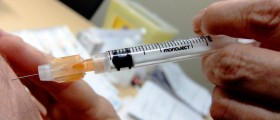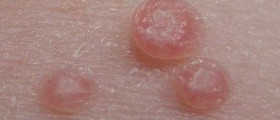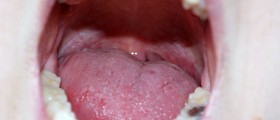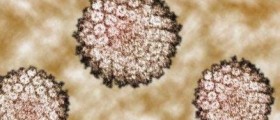
HPV, also known as a human papillomavirus, is a member of the papillomavirus family, and responsible for various infections in the stratified epithelium of the skin or mucous membranes. There are a lot of different types of HPV, nearly 200 of them, but the great majority doesn’t cause any kind of symptoms in humans.
A minor portion of papillomaviruses causes genital warts, while the others can cause cancers of the cervix, vulva, vagina, and anus in women or cancers of the anus and penis in men. Each day in the United States, 30 women are diagnosed with cervical cancer. It is estimated that HPV viruses cause about 75% of all cervical cancer cases.
How can you get HPV?
Most commonly, HPV virus is transmitted through sexual contact with the infected person. More precisely, any kind of contact with the genital area of an infected person is a potential risk. For many patients HPV infection has no obvious signs and symptoms. Many people actually do not know they have it. This means that a person can get infected or spread the infection without even knowing what is going on. The virus is passed most often during vaginal and oral sex, but it is possible to pass it during oral sex. In rare cases, a pregnant woman with genital HPV passes the virus to her baby. If this happens, the child may develop recurrent respiratory papillomatosis, characterized by warty growths in the upper airway and severe airway obstructions or voice change.
Condoms may significantly lower the risk of HPV if they are used all the time and right away, but any skin patch in the genital area that is not covered by condom can be infected by HPV. This actually means that condoms do not provide full protection against HPV.
How to prevent HPV?
Until recently, HPV was very hard to prevent. Preventing HPV included the same recommendations as for any other sexually transmitted disease. However, specifically meticulous condom use by all sexually active individuals does not provide complete protection. Limiting the number of sexual partners was another significant component in the prevention of HPV. Recently, a vaccine called Gardasil became available.
This vaccine helps to protect against 4 most dangerous types of HPV, responsible for genital warts and cervical cancer. GARDASIL also helps protect girls and young women of ages 9 to 26 against 70% of vaginal cancer cases and up to 50% of vulvar cancer cases. This vaccine is given as three injections in six months. However, it may not fully protect everyone, so it is important, at least for women, to continue routine cervical cancer screenings.










_f_280x120.jpg)






Your thoughts on this
Loading...